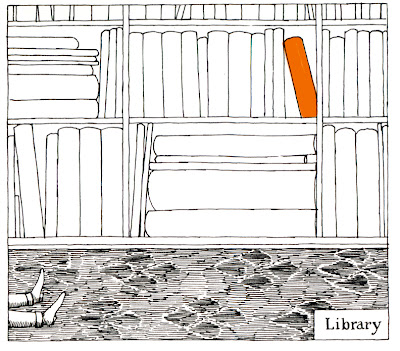
Corposant-- the ball of fire which is sometimes seen playing around the masts of ships in a storm, from Italian corpo santo-- holy body. St. Elmo's Fire.
Dying Sayings --... Archimedes to the Roman soldier: "Wait til I've finished my problem." ... Voltaire : "Do let me die in peace." ...
Tartarus-- infernal regions of classical mythology, used as the equivalent of Hades but Homer places Tartarus as far beneath Hades as Hades is beneath the Earth
Dr. Ebenezer Cobham Brewer described his Dictionary of Phrase and Fable as "a treasury of literary bric-a-brac." I think of it as a rollicking pageant of erudition, flinging out tidbits of wisdom and rightly forgotten obscuranta alike, from "the Aeolian mode" and "baton sinister" to "whipping boy" and "zingari." I found my pitifully dog-eared copy of the 1981 edition at the library sale on Shelter Island and pedant and avid pursuer of trivia that I am, I use it as bedtime reading. And it's great fun.
A bit of background: Brewer graduated from Trinity College, Cambridge, in 1836 and was ordained two years later. Ultimately a failed academic, he proceeded to fill his days compiling dictionaries and surveys, and regimenting a popular children's education series with astonishing speed. He wrote or edited such weighty tomes as An Entire New System of Book-keeping (1853), A Guide to Roman History (1853), Sound and Its Phenomena (1854) and Dr. Brewer's Guide to Science to which is added Poisons and Accidents, their antidotes and remedies (1859) among many, many others.
"What a fussy old gentleman Dr. Brewer is," complained an editorial colleague, although Brewer was just 54 at the time. "He is so insufferably inquisitive and such a gossip!" Dr. Brewer's grandson, in a late memoir, depicted him as far more genial and entertaining, but loony never the less: "The walls of his room were papered in a plain white paper upon which he used to write in pencil stray memoranda and the names of an particularly interesting visitors...."
Grammarian, Classicist, scientific dabbler–Brewer belonged to an era of moral uplift and self-betterment. And it was in that grand spirit of inquiry that Brewer catalogued folkways, classical references, linguistic anomalies, Latin phrases, and popular trifles and issued his Dictionary, in 1870, for his countrymen's, and posterity's, edification. Although his publishers remarked tartly that they were "doubtful whether the book would pay the expense of printing" the Dictionary recently enjoyed a 17th edition just last year...
image from Amphigorey Also, Edward Gorey.




1 comment:
I'm hooked, my copy is on order from alibris. cheers
Post a Comment